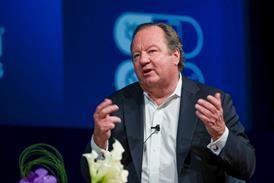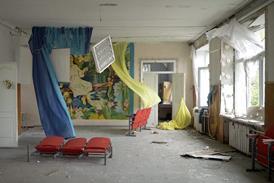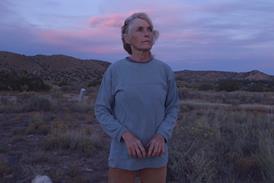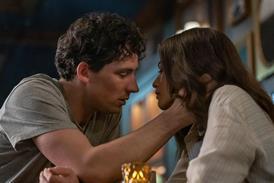The 7th annual Tallinn Black Nights Film Festival (22 Nov-7 Dec) screened 300 films from 50 countries this year, making it the largest edition since its inception despite the ongoing struggle to finance the event.
This year the festival also joined up with the second annual Baltic Film market, a three day event which presented new feature film projects to buyers and festival programmers from neighbouring countries.
The announcement during the festival that the Estonian government had decided to approve its entry into Eurimage in January of 2004 gave an added boost to coproduction projects.
A highlight of the event was a focus on films made in co-operation with Philip Glass who gave a concert during the festival.
Winners of the festival were announced on Dec 6 at a modest award ceremony held for the first time in Estonia's only multiplex, the 11 screen Coca Cola centre.
Originally conceived as a focus on countries bordering the Baltic Sea the festival now draws the best art house cinema from around the world and encompasses three sub-festivals, the Sleepwalkers Student Film Festival, the Just Film Festival which features youth films and the Animated Dreams Festival which features an animation competition.
The most controversial award was the animation prize which went to Robert Morgan's Separation (UK) a technically accomplished, though dark and bloody tale of Siamese twins. With the work of Estonian animation studios recognised throughout the world, the animation competition is one of the most prestigious events of the festival.
The public prize went to a Finnish contemporary drama Upswing directed by Johanna Vouksenmaa in her feature debut. The Russian Oscar hopeful The Return directed by Andrei Zvyagintsev continued its string of festival triumphs as it picked up the FIPRESCI jury award while the grand prix went to Turkish director Nuri Bilge Ceyhan's Distance.
The Baltic Film Market organised for the second time this year attracted buyers and festival programmers from Finland, Sweden, Germany, Norway, Denmark, Russia and other countries.
Both BBC Films and ARD were among those represented. Rough cuts of up to 45 minutes of five feature projects in various stages of development or production from Latvia and Estonia were presented. The Lithuanians who have lagged behind their neighbours in film production infrastructure did not present any projects.
Anu Veermae, executive producer at Rudolf Konimois, one of the leading Estonian production outfits, presented a 45 minute clip from her new feature project, Revolution of Pigs, directed by Estonian docu makers Jaak Kilmi and Rene Reinumagi in their feature debut. Now in post production the film is about an imaginary revolt in a communist youth camp set in 1986 Estonia.
The directors assembled 500 teenagers and camped out with them during a month long shoot last summer to acheive a documentary feel for the film. The project was the first feature to receive Media Plus support for its development in Estonia and Veermae said she had received very positive feedback during this year's Baltic Market with two distributors asking to see the final cut.
''This is the second year for the Baltic Market and this year it's really working,'' she said. ''We had good feedback from everyone, especially the Russian distributors. The Russian market is an important one for Estonia because of our common history.''




















No comments yet